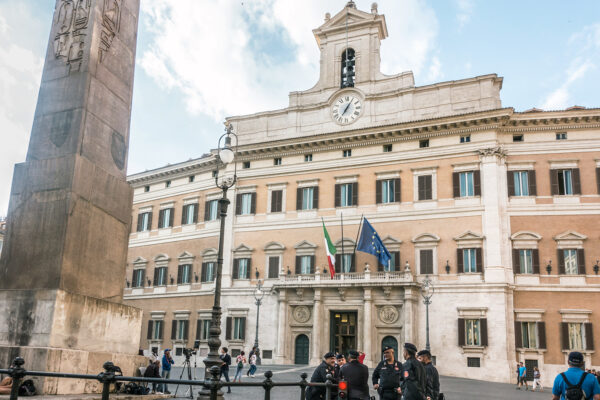
Alberto Mingardi of the libertarian Bruno Leoni Institute in Milan argues in Politico that the “deep roots” of Italy’s coalition chaos lie in an electoral system that makes it hard for any one party to govern.
I think the roots actually go deeper than that.
Holes
There are two holes in Mingardi’s argument:
- If a multiparty system is the problem, we would expect something closer to winner-takes-all to produce better government in Italy. It hasn’t.
- If the system is the problem, other multiparty democracies would look like Italy. They don’t.
Berlusconi
Mingardi argues that political reforms in the early 90s, which gave a bonus to the winning party, produced “more stable” government, with Silvio Berlusconi in particular “dominating the political stage.”
But what did Berlusconi do with that power? Did he rationalize the tax system? Prepare Italian education for the twenty-first century? Improve the efficiency of, and tackle corruption in, the courts? Reform labor law, to make it easier for companies to hire and for young Italians to find a job? Put the pension system on a more stable footing? Mend the economic divide between Italy’s north and south?
No. In fact, Berlusconi was so useless that when the European debt crisis threatened to engulf Italy in 2011, the leaders of France and Germany pressured him to resign and make way for a technocratic government that could start to clean up the mess he had made.
Mingardi neglects to mention that Berlusconi never ruled alone, but always in coalition with the then-Northern League. It has now surpassed Berlusconi’s party on the right.
Nor does he mention that Berlusconi didn’t rule non-stop. Between his rise and fall, Italy had seven governments in sixteen years, two of which were led by Berlusoni, four by the left and one by an independent.
Look abroad
Italy has had four prime ministers in the last five years. It seems no matter which system Italians choose, they end up with political turmoil.
A look across Italy’s borders confirms that the problem isn’t systemic. All Northern European countries use proportional representation. None changes government as frequently as Italy does.
The real problem
So what is really the problem?
Mingardi hints at it when he writes that politics is, “at all levels, a distributive activity.”
You keep people loyal by throwing them buns. The logic of political appointments is key to keep the machine of consensus well-oiled in a complex society.
Italian governments seldom collapse over ideological differences. They fall because they rely on the support of “complex mosaics of political parties and relevant supporting interests,” all of which have to be rewarded to remain part of the coalition. As soon as one group or faction feels slighted by a policy or law, and has to be appeased with another plum appointment, a second group will demand something else and the whole delicate balance starts to come apart.
Mingardi takes it granted that this is how politics work, and to some extent it does in every country.
But in few countries is it the only thing that matters to politicians.
When governments in the Netherlands or Sweden collapse, it usually is over ideological differences. No party in Finland or Germany would think of legislating to protect their leader from prosecution, like Berlusconi’s did.
To answer the question how Italy became this way would require far more space. Suffice it to say, the problem isn’t the electoral system; it’s Italy’s political culture.
